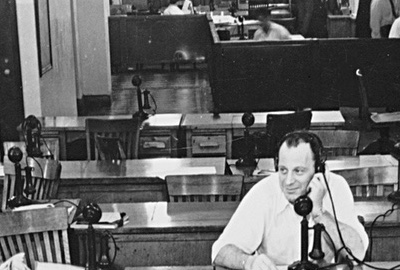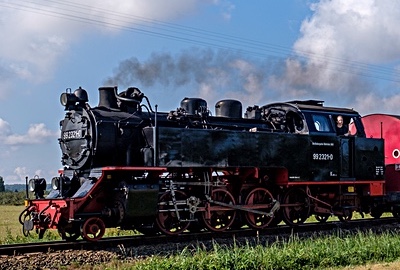 2022-05-08
2022-05-08

History Of American Business
- ArticlesandContent.com (CIRCA 2005)
- /
- Oct 8, 2021 (written 2005)
There’s a Chinese maxim that says “It’s easy to open a business but it’s an art to keep it open.”
Every commercial endeavor is founded on a basic human aspect—want. Prior to the existence of money, the world depended on buying a service or object in exchange for another service or object—a system of business known as the barter system. This method of trade originated the moment communication developed, as far back as the prehistoric times. The history of business organizations—from the Assyrian merchants in the 19th century B.C to the Dutch East India Company in 1602 A.D to the current array of multibillion dollar companies*—is a vast and truly remarkable one.
The world’s first Multinational Company
Many consider the Dutch East India Company as the first multinational corporation in the world. With their trade expanding to most parts of the world, the Company established a monopoly in the field of business for over 200 years by carrying out colonial activities especially in Asia. Despite the colonial nature of its operation, the Dutch East India Company, however, has gone down in the history of business organizations as the first ever multinational commercial enterprise.
The Industrial Revolution
The Industrial Revolution, which took place during 1700-1850 A.D, saw an unprecedented surge in technology, the effects of which we still see strongly prevalent in today’s digital age. In a way, some of the greatest pages in the history of the business organizations were written during the Industrial Revolution. An eruption of technological knowledge drastically enhanced the growth of several businesses like textiles, mining, metallurgy, chemicals, transport, medicine, and agriculture.
The entry of ambitious entrepreneurs
The giant leaps that technology made during the Industrial Revolution gave an impetus to the succeeding generations where large enterprises, headed by ambitious, revolutionary entrepreneurs thrived. Three names, if one were to pick and choose, that boosted the industrial world into a whole other arena of success were that of the Scottish Andrew Carnegie and the Americans John D. Rockefeller and Henry Ford. The three 19th-century industrialists didn’t just stamp their indelible marks in the history of American business, but in the history of international business possibly forever.
Andrew Carnegie and the Steel Business
The Carnegie Steel Company, which was located in Pittsburgh, didn’t merely see the rise one of the world’s most successful businessmen, but created an all around progress that laid the foundation for America’s superior standard of living in today’s age. As far as the history of American business goes, the Carnegie Steel Company was the one company that transformed the infrastructure of the modern world. Carnegie’s steel possessed two qualities that gave every business an inevitable upper hand—quality and cheapness. With the boom of the Carnegie Steel Company, bridges, skyscrapers, and high-rise buildings increased, and with it the standard of modern day infrastructure.
“Concentration is my motto - first honesty, then industry, then concentration.”
John D. Rockefeller and the Petroleum Industry
Rockefeller’s Standard Oil Company changed the petroleum industry forever and put his name in big bold letters in the history of American business, as well as the history of international business. He was the first person in the history of American business to earn the title of being a billionaire. He is often quoted by financial and business magazines of today and is considered the richest man in history. Despite his several commercial commitments, Rockefeller, much like Carnegie, was one of the greatest philanthropists of his time.
Henry Ford and the Automobile Industry
He revolutionized mass production with his unique manufacturing process known as “the moving assembly line” that was able to finish a car within 98 minutes. By making available inexpensive automobiles to a large group of people, the Ford Motor Company raised the standard of living for American people and made America one of the leading economies. The history of American business owes a lot to one of the greatest American visionaries, Henry Ford. He was also a pioneer of welfare capitalism, which earned him a godlike status in the history of international business and in the hearts of laborers.
American Businesses Evolve
Today, as we set sail through the infant stages of the 21st century, business organizations and multinational corporations are not a handful, but almost a dime a dozen. With the unparalleled rise of technology and the advent of e-commerce, every man could be a businessman if he had the drive and the will to work hard enough. The Internet, perhaps, can be credited for being the single biggest reason for the commercial boom that we experience all around us. Today’s heroes aren’t war heroes or revolutionaries or celebrities, but business tycoons* who, with their ambitious mind and through their relentless hard work, have made life far more comfortable and easier.
Companies like Microsoft™, Nokia™, Sony™, Nike™, Honda™, Wal-Mart™, and Apple™ aren’t just names of corporations to the people of today, but integral components of their everyday life. These big names and similar others, are already some of the most successful corporations in the history of business organizations, and will undoubtedly live on in the history of international business as some of the companies that changed the world forever.
More From Business
 2022-05-08
2022-05-08
 2022-05-08
2022-05-08
Real Life Railroad Tycoons
 2022-05-08
2022-05-08
3 of the Most Famous Entrepreneurs
 2022-05-08
2022-05-08
History of Philanthropy
 2022-05-08
2022-05-08
Birth Of The Corporation
 2022-05-08
2022-05-08
What Was The Dot Com Bust?
 2022-05-08
2022-05-08
How Wall Street Began
 2022-05-08
2022-05-08
1929 Stock Market Crash
 2022-05-08
2022-05-08
A Few of the Most Famous CEOs
 2022-05-08
2022-05-08
Famous Career Changes
 2022-05-08
2022-05-08